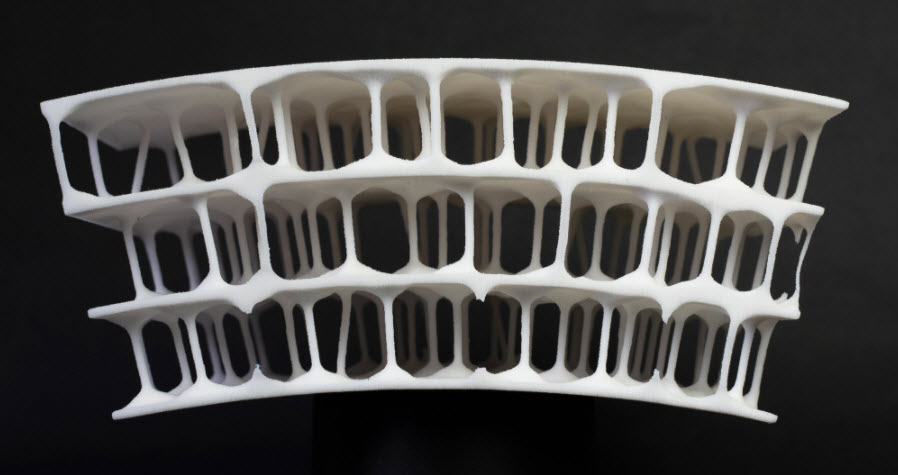Design for life and Dassault Systèmes’ Design Studio
Michael Pawlyn is featured as part of a collaboration between Dezeen media and Dassault Systèmes. The in-house Design Studio founded by Anne Asensio at Dassault Systèmes develops close relationships with designers, creators and innovators from across the design community who explore and experiment with advanced technologies to develop new collaborative design processes to build a better world.
Michael is a thought leader in regenerative design and the circular economy. He has lectured internationally. His TED.com talk has had over 2 million views. His book “Biomimicry in Architecture” has been its publisher’s best-selling title.
Founder of Exploration Architecture, Michael says “Biomimicry is innovation inspired by nature . . . we use biomimicry to rethink all sorts of building types and develop solutions that use resources much more efficiently.”
In a 2019 interview with Dezeen magazine, Pawlyn declared, “We fooled ourselves that sustainability was getting us where we needed to go.” He believes we need to go beyond minimizing damage to the planet and design buildings that help repair it.
Exploration Architecture projects draw on examples found in nature, looking at organisms that have developed precise structures that use material sparingly through millions of years of evolution.
An example Pawlyn cites is a collection of 3D-printed display tables designed for an exhibition at London’s Architecture Foundation in 2014. The team worked out algorithms based on bone and tree growth patterns to find the most efficient placement of materials and supports. The resulting structures used 1/1,000th of the material of a solid object at that same volume.
Using natural forms to create better structures
“Bird skulls are a great example of a complex and very efficient structure,” explained Pawlyn. “We used computational design to produce a version of this.”

3D-printed structure modeled on a cross-section of a bird’s skull
By building the model similar to the way it grows in nature, the team was able to create domes of incredibly thin, bony material, connected together with struts and ties. The result is very lightweight and structurally efficient.
Michael feels that by collaborating across multiple disciplines like science, art, computational design – it will be possible to create cities and buildings that create zero waste, use less material, and emit no pollution. At that point, architecture is producing a positive impact.
Watch an interview with Michael Pawlyn as he describes his design approaches and shows some of his latest projects.
Other cutting-edge architects and designers using technology and research who are profiled in the series include DS Automobiles design director Thierry Metroz, Mamou-Mani Architects founder Arthur Mamou-Mani, founder Nassia Inglessis of Studio INI and JK Design founder Julia Koerner.
You can watch the complete series of designer interviews on the Dezeen / Design for life site.

